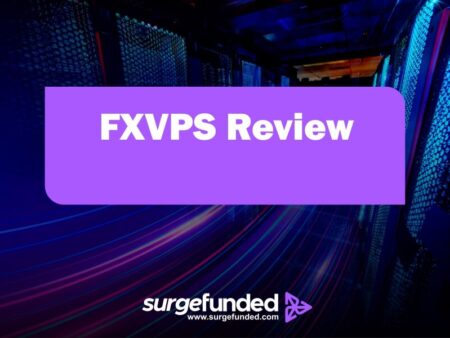There are many pros and cons of funded account management. A common option for traders wishing to participate in financial markets without jeopardizing their own money is funded account management. Usually, under this system, traders receive capital to trade from prop firms, and the firm and the trader split the gains. Although there are many pros to this paradigm, there are cons as well. In order to assist aspiring traders in making well-informed decisions on their trading careers, this article will examine the pros and cons of funded account management.
Understanding Funded Account Management
The partnership model used by funded account management evaluates traders according to their overall performance, risk management prowess, and trading acumen. After passing the assessment, the firm gives you money to trade stocks, currencies, and futures, among other financial products. With this configuration, traders can reduce their personal financial risk while potentially making large rewards.
Pros of Funded Account Management
Obtaining Capital
The ability to access large amounts of trading cash is one of the most important pros of funded account management. Traders’ potential gains can be greatly increased by managing greater holdings than they could with their own money. For example, financed traders can run accounts with values ranging from $25,000 to $10 million, but retail traders may only oversee accounts with $1,000 to $10,000.12.
Decreased Risk to Finances
Traders can participate in the market with funded accounts without having to risk their personal funds. The funding source absorbs trading losses, which can give traders peace of mind and motivate them to take measured risks without worrying about losing their own savings.
Career Advancement
As part of their sponsored programs, a lot of prop firms provide training materials and coaching. Over time, this expert advice can assist traders in developing their abilities and refining their trading tactics.
Rewards for Performance
Performance-based incentives are frequently included with funded accounts which constitutes one of the pros of funded account management. Traders that regularly hit profit goals might be given greater profit-sharing arrangements or larger capital allocations, which would encourage them to keep up their strong performance.
Pay Attention to Trading
Traders can focus on creating and implementing their trading methods instead of worrying about personal money when financial risk is reduced and capital is made available. Better trading results and decision-making can result from this focus.
Scalability
Depending on performance benchmarks, profitable traders can increase their trading money. For instance, a trader who earns a 10% return may see their account size doubled, enabling for even higher profit potential.
Being in a Professional Setting
Access to advanced trading platforms and tools that retail traders would not have is frequently granted when trading with a funded account. Joining a group of seasoned traders can also offer helpful advice and assistance.
Cons of Funded Account Management
Sharing of Profits
The requirement that traders provide the funding provider a cut of their profits is one of the major cons of funded account management. Profit splits can be advantageous (often around 70/30 or even 90/10), but they still lower total earnings as compared to trading with only personal capital.
Tight Guidelines for Risk Management
Traders are required to follow strict risk management criteria while using funded accounts. Account termination or the loss of funding capabilities may follow noncompliance, which may put pressure on traders and influence their choices.
Pressure to Perform
For traders, the pressure to reach predetermined profit goals can be stressful, which may cause them to make snap decisions or deviate from their established trading strategies. For beginners, this pressure can be very difficult.
Method of Evaluation
Usually, a trader must successfully complete a demanding evaluation process that evaluates their abilities and tactics in order to have access to a funded account. This procedure can be difficult and time-consuming, particularly for beginners who might not have achieved steady income yet.
Restricted Authority
The funding provider’s regulations may limit traders’ control over their trading tactics. Flexibility and adaptability in the face of shifting market conditions may be restricted by restrictions on the instruments traded or certain tactics.
Possible Charges
Certain funding platforms impose fees for platform usage or evaluations, which might result in additional expenses that lower traders’ total profitability. When weighing the possible advantages of enrolling in a subsidized program, these costs must be taken into account.
Strategy Theft Risk
There is a chance that traders who share their profitable tactics with the funding firm could have those tactics copied or used by the firm itself without giving the trader due credit or remuneration. Some people can be discouraged from taking part in financed initiatives because of this worry.
In conclusion
For potential traders who want to get into the financial markets without jeopardizing their own money, funded account management offers an alluring opportunity. Many people are persuaded to take this path by the advantages of having access to large trading capital, lower financial risk, chances for professional growth, and possible scalability.
Prospective traders must, however, balance these pros against the cons of funded account management, which include profit-sharing arrangements, stringent risk management guidelines, performance demands, and little control over trading tactics.
In the end, managing funded accounts successfully necessitates not only talent but also self-control and flexibility in negotiating strict restrictions and market conditions. Before enrolling in a funded trading program, traders should carefully evaluate their own skills and objectives to make sure they are working with a trustworthy firm that supports their growth ambitions in the highly competitive financial trading industry.
Frequently Asked Questions
1. What Are Funded Account Management
- The partnership model used by funded account management evaluates traders according to their overall performance, risk management prowess, and trading acumen. After passing the assessment, the firm gives you money to trade stocks, currencies, and futures, among other financial products.
2. What Are The Pros of Funded Account Management
- Obtaining Capital
- Decreased Risk to Finances
- Career Advancement
- Rewards For Performance
- Pay Attention to Trading
- Scalability
- Being In A Professional Setting
3. What Are The Cons of Funded Account Management
- Tight Guidelines for Risk Management
- Pressure To Perform
- Sharing Of Profits
- Restricted Authority
- Methods Of Evaluation
- Possible Charges


















